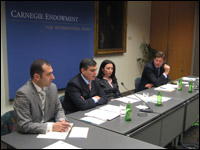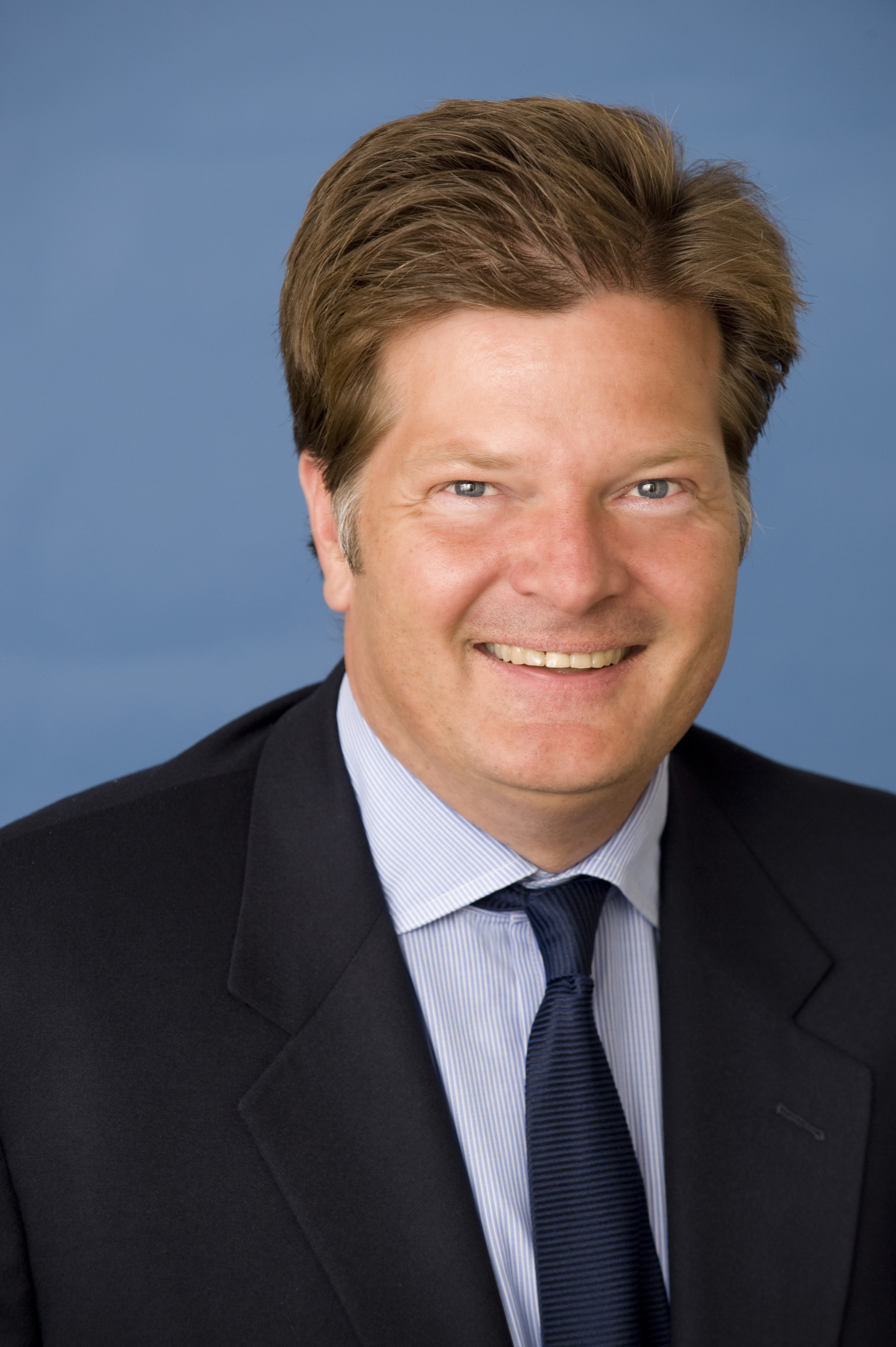{
"authors": [
"Aram Sarkissian",
"Mark Medish"
],
"type": "event",
"centerAffiliationAll": "dc",
"centers": [
"Carnegie Endowment for International Peace"
],
"collections": [],
"englishNewsletterAll": "",
"nonEnglishNewsletterAll": "",
"primaryCenter": "Carnegie Endowment for International Peace",
"programAffiliation": "russia",
"programs": [
"Russia and Eurasia"
],
"projects": [],
"regions": [
"Caucasus",
"Armenia"
],
"topics": [
"Political Reform"
]
}
Armenia at the Crossroads: A Preview of the 2007 Parliamentary Elections
Tue, February 13th, 2007
Washington, D.C.
On February 13, 2007 , the Carnegie Endowment for International Peace hosted a working meeting on the upcoming Parliamentary election in Armenia with former Prime Minister and opposition leader, Aram Sarkissian. Carnegie Vice President for Studies, Mark Medish, chaired the session. Below is the full text of Mr. Sargsyan's speech and a summary of the Q&A session.
IMGXYZ649IMGZYX
Q&A:
Q: You mentioned that you hope the US and other foreign actors will fairly judge the openness and fairness of the upcoming elections. Are there any other step you would like to see us take before the election? In other words, are there any steps we can take right now?
First of all, I want to say that I don’t want my country to become Belarus. Let me explain what I mean by that. Belarus is not only run by a dictator, but its economy is also falling completely under Russian control. As you know, Russia now owns 80 percent of Armenian industry. We need the assistance of the international community to win back our sovereignty and gain control over our own economy.
The elections in Armenia must take place and be given direction by the Armenian people. The US and EU have always supported free and fair elections, but the last elections in Armenia were less than free. It is important for the EU and US to continue to put pressure on the rulers of Armenia to open up the elections.
Q: With respect to Nagorno-Karabakh, do you think the basic structure of a deal is within reach? I am also curious on your thoughts about the prospects of better relations with Turkey in the wake of the tragic murder of the Turkish-Armenian journalist Hrant Dink.
Negotiations on Nagorno-Karabakh aren’t progressing as a result of the initiative of the Armenian authorities. They can’t solve this issue, but can only create a temporary peace between dictators, akin to the Molotov-Ribbentrop Pact. It is simply not possible for two dictators to create a lasting peace. Thus we must first build democracy at home before building strong relations Azerbaijan.
In regard to the second question, my party has always been in favor of strong ties with neighbors. There are some who get hung up on the tragic events of the beginning of the twentieth century, but it is important to realize that we are now in the twenty first century. Neither of side benefits from the current stand-off with Turkey. Turkey is aspiring to the EU and is a supporter of Nato. Armenia supports Nato and desires better relations with the EU. It is thus important to get over our differences and realize our common interests.
Q: Do you believe that a peaceful revolution like the Rose and Orange Revolutions is possible in Armenia?
We would love it if that were the case. It is a common misperception in Armenia that both of those revolutions were the result of US provocations. Such views degrade the nobility and initiative of the Georgian and Ukrainian people, whose bravery propelled those revolutions.
I believe that the Armenian people have the potential to bring about a revolution as well. On the day of the Armenian elections in 2003, 150,000 people came out to protest, and I had the honor of speaking to that crowd.
The sensitive issue for us is Nagorno-Karabakh. The ruling party constantly uses it to silence us, calling us traitors if we question their policies despite the fact that my departed brother, myself, and much of the opposition are veterans of the Karabakh war. The public can see through this, and I pray that they will in the next election.
Q: Do you have any criticism of the way in which the current government has been conducting its relations with Azerbaijan on the issue of Karabakh?
I firmly believe in resolving the conflict with Azerbaijan, a point on which I agree with the government’s official line. Unofficially, however, it is clear that the government has a stake in maintaining the status quo. Moreover, as I said earlier, they cannot resolve this issue. First, as I said before, cooperation between dictatorships in troublesome, but secondly, in order to reach any lasting peace the Armenian and Azerbaijani publics have to be brought on board. I can only really speak about Armenia, but in my opinion, the public has been excluded from the decision making process as dictators have risen to power. They will reject any peace plan, coming out into the streets to protest. Thus a lasting peace is beyond our reach.
Q: What do you favor as a solution to the Nagorno-Karabakh issue, and how much of the population would endorse your solution?
The population is very supportive of my position on the Nagorno-Karabakh issue. Armenians have made clear that they want to see the issue resolved. I support the Minsk Group’s recommendations. Of course, I don’t agree with everything in that document, but I agree with the key principles it espouses.
Our government uses that document as an excuse not to move forward and to push back resolution dates.
Q: Will you give us a brief outline of the upcoming election? Who are the main players and what are the prospects for change?
Robert Kocharian has created a new party of power, and this party will come out on top in the next election. It is comprised of three smaller parties: the Republican Party, the National Party, and Prosperous Armenian. The other parties in the field can be viewed as opposition parties. They are independent of the current regime, but at the same time have quite a bit of influence. What is ironic, however, is that they fight very hard throughout elections, but then leave the field at the last minute in order to placate Kocharian. Only a few stalwart parties actually make it through the entire electoral cycle. If this opposition was to act in unity, we could have results like those in Georgia.
There is a pre-election process in the United States, which is very important to the decision making process, and then there is the actual Election Day. This day is followed by a smooth succession of power. There is no such process in Armenia. The pre-election process is dominated by the government, and the opposition is repressed. On the day of the elections, a very simple electoral formula becomes very complicated. The government closes down polling stations, and skews the results in its favor.
Then there is the post election processes. The public comes out to protest the fraudulent elections results, asking the government to resign. Police and troops are used to put down the protest. Every election since 2003 has progressed like this.
Carnegie does not take institutional positions on public policy issues; the views represented herein are those of the author(s) and do not necessarily reflect the views of Carnegie, its staff, or its trustees.
